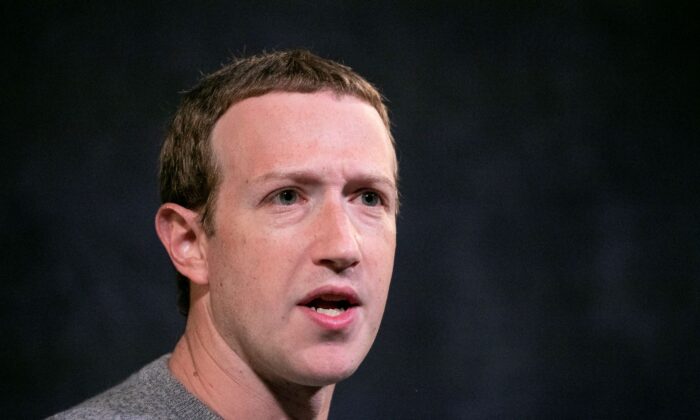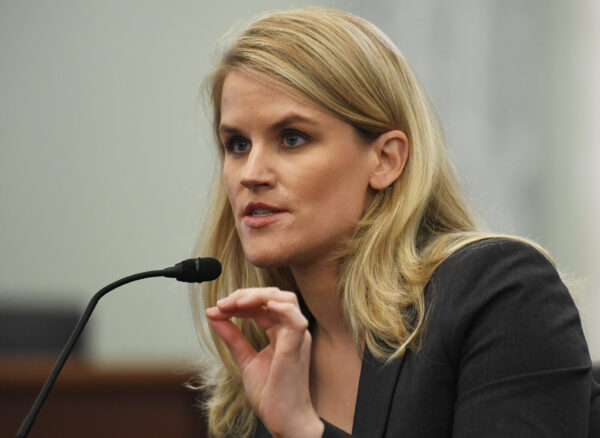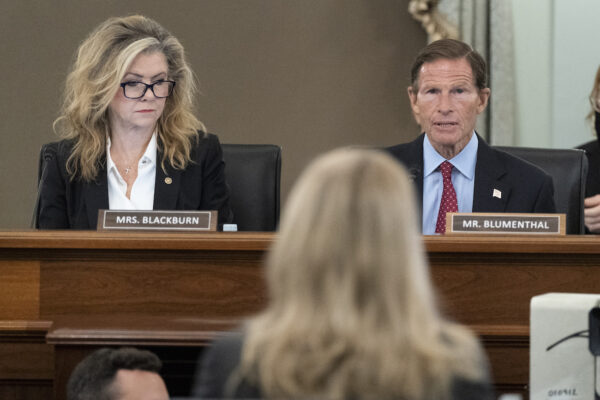
Facebook CEO Mark Zuckerberg has responded to claims made by former employee and聽whistleblower聽Frances Haugen聽in聽testimony before Congress on Oct. 5.
Hague, who used to work as a lead product manager for Facebook鈥檚 civic misinformation team, spoke before the聽Senate聽Subcommittee on Consumer Protection, Product Safety, and Data Security where she discussed the聽company鈥檚 internal practices, particularly regarding how they聽disproportionately affect children.
hearing was initially prompted by an expose by Wall Street Journal that showed Facebook had hidden research data on the harmful effects of its platform.
Haugen accused Facebook of prioritizing profit before the well-being of its users, telling Congress that she聽believes Facebook鈥檚 products “harm children, stoke division, and weaken our democracy.”
Zuckerberg was notably absent from the hearing, having gone sailing instead.
However, the Facebook CEO took to聽his own platform later on Tuesday to respond to the聽testimony in a lengthy post in which he reiterated that the company places a special emphasis on the safety and well-being of its users, while stating that聽Haugen’s claims simply “don’t make sense.”
“Now that today’s testimony is over, I wanted to reflect on the public debate we’re in. I’m sure many of you have found the recent coverage hard to read because it just doesn’t reflect the company we know. We care deeply about issues like safety, well-being, and mental health,”聽Zuckerberg wrote.
“It’s difficult to see coverage that misrepresents our work and our motives. At the most basic level, I think most of us just don’t recognize the false picture of the company that is being painted.”
He continued: “Many of the claims don’t make any sense. If we wanted to ignore research, why would we create an industry-leading research program to understand these important issues in the first place? If we didn’t care about fighting harmful content, then why would we employ so many more people dedicated to this than any other company in our space鈥攅ven ones larger than us?”
Facebook CEO went on to question why the social media giant would establish an “industry-leading standard for transparency and reporting” if it wanted to hide the results of its findings.


“At the heart of these accusations is this idea that we prioritize profit over safety and well-being. That’s just not true … argument that we deliberately push content that makes people angry for profit is deeply illogical,”聽Zuckerberg wrote.
Much of his post then turned to claims about the company鈥檚 research into children while simultaneously touting Facebook’s Messenger service for kids, which was released in 2017.
He continued: “But of everything published, I’m particularly focused on the questions raised about our work with kids. I’ve spent a lot of time reflecting on the kinds of experiences I want my kids and others to have online, and it’s very important to me that everything we build is safe and good for kids.”
Zuckerberg noted that Facebook has worked on bringing a similar app for children under 13 to Instagram鈥攚hich is owned by Facebook鈥攈owever the company has currently paused those plans after being urged to do so by聽some聽44 state attorneys general from both major parties.
“Like many of you, I found it difficult to read the mischaracterization of the research into how Instagram affects young people,” he said.
CEO stated that the company’s internal research into Instagram found that the platform “helps them” when they are struggling, contrary to reports that is is聽harmful to the mental health of teenagers.
“In fact, in 11 of 12 areas on the slide referenced by the Journal鈥攊ncluding serious areas like loneliness, anxiety, sadness, and eating issues鈥攎ore teenage girls who said they struggled with that issue also said Instagram made those difficult times better rather than worse.”
Zuckerberg reiterated that Facebook is committed to doing more research into how the app affects the mental health and well-being of children, and advocated for Congress to update Internet regulations.
“We’re committed to doing the best work we can, but at some level the right body to assess tradeoffs between social equities is our democratically elected Congress. For example, what is the right age for teens to be able to use Internet services? How should Internet services verify people’s ages? And how should companies balance teens’ privacy while giving parents visibility into their activity?” Zuckerberg聽said.
“If we’re going to have an informed conversation about the effects of social media on young people, it’s important to start with a full picture. We’re committed to doing more research ourselves and making more research publicly available,” he added.
Elsewhere in his statement,聽Zuckerberg also touched on the platforms’ global outages on Monday, which saw Facebook, Instagram, and WhatsApp go down for up to seven hours.
CEO called it the “worst outage we’ve had in years” and said they have looked into how they can bolster systems to prevent such a failure from happening again.
“This was also a reminder of how much our work matters to people,” he added.
Pezou : Zuckerberg Responds to Facebook Whistleblower’s Testimony, Says Claims ‘Don’t Make Sense’